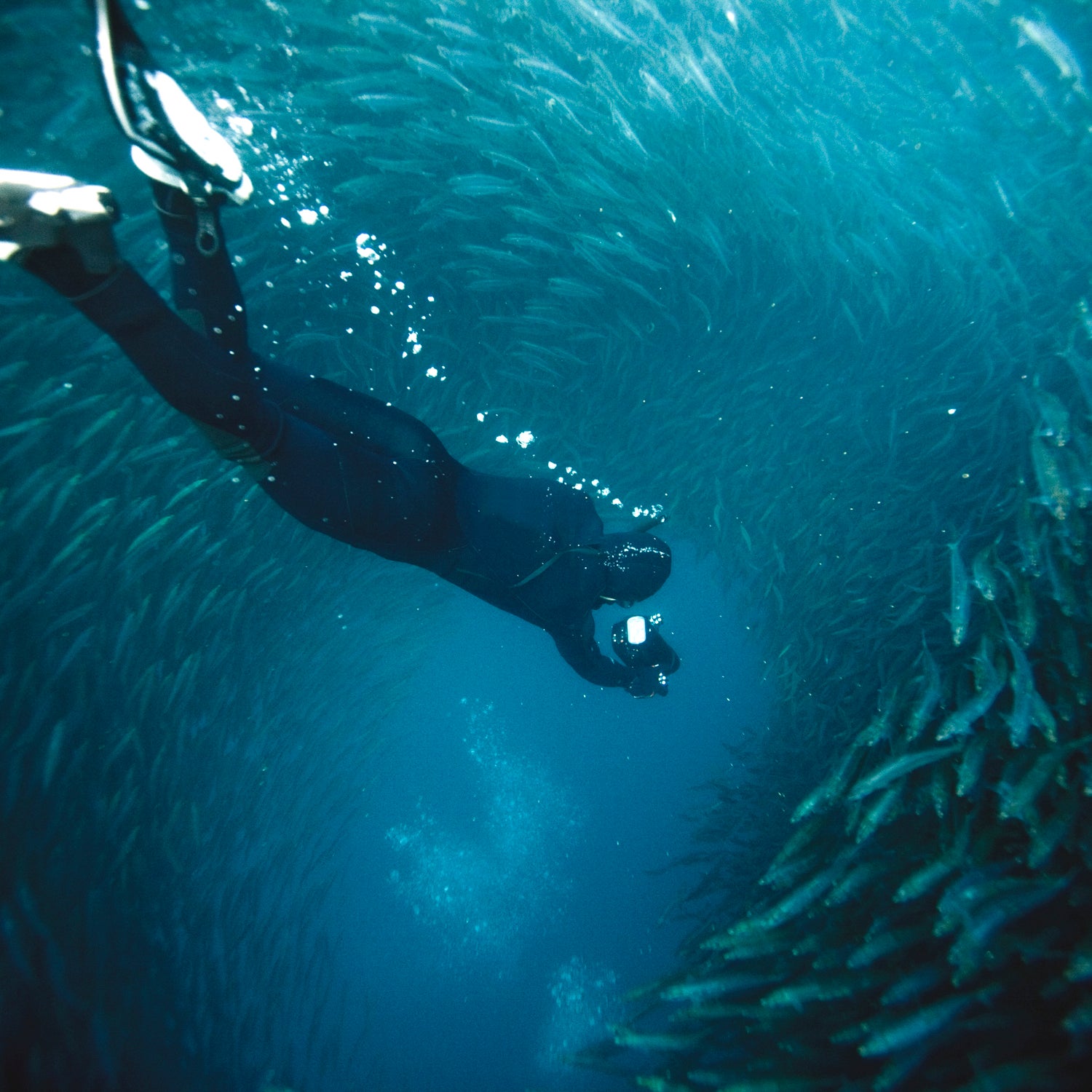Freedivers routinely hold their breath for over four minutes while diving to depths beyond 300 feet, where barometric pressure can reduce their lungs to the size of nectarines. For decades, the sport's very best have heard dire warnings from doctors and scientists about the unknown, potential health risks; each time they’ve tuned them out, dove deeper, and held their breath longer, stretching the boundaries of medical science. But this month, researchers at the University of Bonn, in Germany, have that freedivers’ hearts may be at risk each time they take the plunge.
Each time a diver holds his or her breath for an extended period, the study says, the body undergoes involuntary systemic changes to sustain consciousness. Blood vessels constrict in the arms and legs and dilate in the heart and brain, funneling oxygen-rich blood to the cerebral cortex. The diver’s pulse also plummets to half an athlete’s resting heart rate (which is about 40 beats per minute). Although these effects have been recorded in previous studies during static breath-holds at the surface, the study found that the effects are maximized when a diver goes deep. The same thing occurs in dolphins and seals, which led scientists to dub it the “mammalian dive reflex” in the 1960s.
The Bonn researchers observed 17 freedivers, ranging in age from 23 to 58 years old, as they held their breath for as long as possible while laying face up on an MRI bed. In addition to monitoring brain activity, researchers, led by anesthesiologist Lars Eichhorn (himself a freediver), recorded oxygen saturation and blood pressure and took electro cardiograms. The idea was to develop a research protocol for studying the relationship between the heart and the brain during long breath-holds. But the study evolved into something unexpected when Eichhorn himself was loaded into the MRI machine and proceeded to hold his breath for more than eight minutes.Â
Most nascent freedivers can hold their breath for two or three minutes, but holding beyond five minutes requires deep relaxation, many hours of training, and a special brand of pain tolerance.
“What we noticed,” Eichhorn said, was that, for all the ways that the mammalian dive reflex is designed to keep a person conscious, “it might also cause arrythmia [or an abnormal heart rhythm] and other problems for the heart.”
Prior to his research career, Eichhorn was a competitive freediver, and has a personal best static breath-hold of over nine minutes. That’s world-class. Static is one of six competitive freediving disciplines. All an athlete has to do is take a deep breath and go face down in the pool; it’s both the simplest and arguably the most painful of the disciplines. Holding for two or three minutes is doable for most nascent freedivers, but holding beyond five minutes requires deep relaxation, many hours of training, and a special brand of pain tolerance. Tension in the muscles supercharges oxygen demand, and the risk of a black-out rises as oxygen dwindles. Then there are the repeated muscle contractions: as seconds turn to minutes and carbon dioxide builds up in the blood, the diaphragm and intercostal muscles do their best to force the body to take another breath. Those involuntary contractions can feel like a swift kick to the groin.
After Eichhorn’s breath-hold in the MRI, he and his colleagues watched the footage. “My left ventricle was quite enlarged and the pumping [rhythm] wasn’t right,” he said. In a healthy heart, parts of cardiac muscle tissue overlap as the heart beats. But that wasn’t happening with Eichhorn. Claas Nähle, head of the cardiac magnetic resonance research group where the study took place, entered the monitoring room out of curiosity while Eichhorn was reviewing his time inside the MRI, and noticed it immediately.
“Wow, that guy’s really ill, isn’t he?” Nahle asked.Â
“No,” Eichhorn replied. “It’s me!” Yet even he couldn’t deny the fact that his heart looked like that of a patient in the throes of systolic heart failure. Intrigued, Nähle joined the research team.
One by one, the 17 athletes came through the laboratory, holding their breath for an average of five minutes, and each time researchers saw the same effect: enlarged ventricles, a significant decrease in fractional shortening (that overlap of the heart tissue), and hypoxia (a lack of oxygen in the system). The divers all recovered normal heart function within minutes after they began breathing again.
Eichhorn is not ready to sound the alarm and say that serious freedivers are in immediate or long-term danger. “At the moment we have no evidence of any long-term effects,” he said. However, beginners with pre-existing heart problems are more concerning, Eichhorn said. Long breath-holds “could be harmful for improperly trained divers or people with cardiac or other medical conditions,” according to the study. So before you think about going on a recreational freedive, see your doctor.Â


